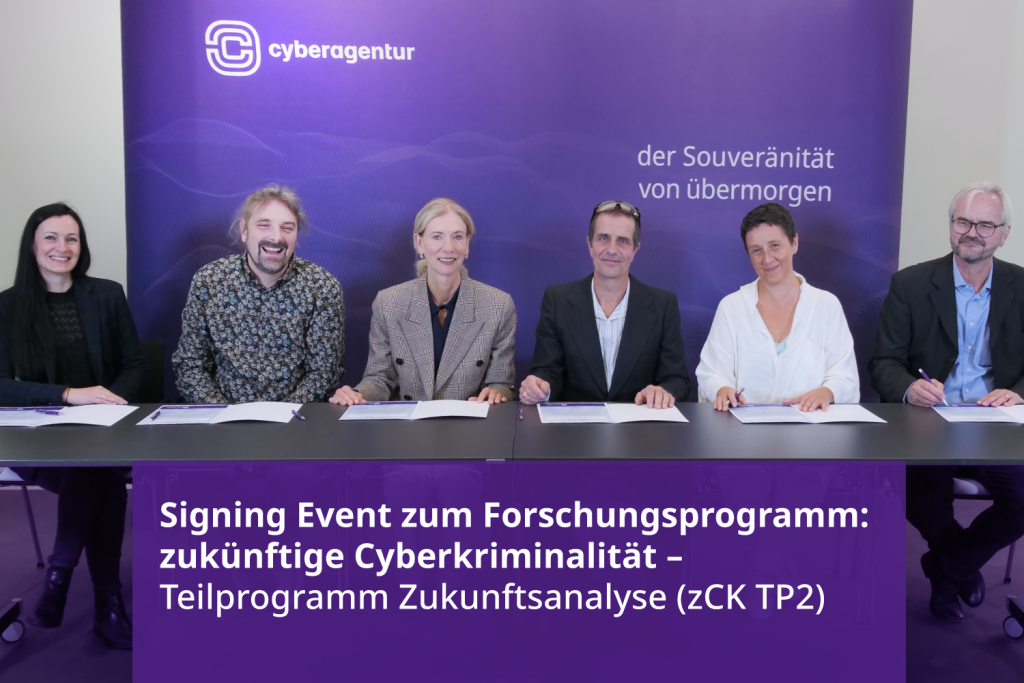IZT launches research on the future of cybercrime on behalf of the Cyberagentur

The signing of a contract between the Cyberagentur and the Institute for Futures Studies and Technology Assessment (IZT) marks the beginning of a new chapter in the Future Cybercrime (zCK) research program. The aim of the “Future Analysis” sub-program is to develop cybercrime scenarios from 2030 to 2040 and to identify options for action for society and security authorities.
The digital world is changing rapidly – and with it the methods and strategies of cyber criminals. Technologies such as artificial intelligence, quantum computing, nanotechnology and brain-computer interfaces offer opportunities, but also open up new areas of attack. This development presents law enforcement agencies, security actors and society as a whole with the challenge of recognizing future risks in good time and countering them effectively.
The Cyberagentur’s “Future Cybercrime” (zCK) research program focuses on precisely these issues. With the agreement that has now been signed, the Institute for Futures Studies and Technology Assessment (IZT) is taking over the implementation of the “Future Analysis” sub-program. The aim is to develop plausible scenarios for the years 2030 and 2040 that take technological, cultural and structural conditions into account and derive concrete options for action for politicians, authorities and society.
Dr. Nicole Hartlapp, Head of the zCK programme, emphasizes on the conclusion of the contract: “Future research in the field of cybercrime is essential in order to develop proactive security strategies, identify technological disruptions at an early stage and systematically identify potential social and infrastructural vulnerabilities.”
The IZT is contributing its many years of expertise in foresight methods, technology assessment and participatory dialog formats. Project manager Ingo Kollosche emphasizes: “We also want to break new ground here by further developing current foresight methods in a targeted manner and trying out new approaches.” The researchers are linking technological analyses with social factors such as changing values, acceptance of technology, skills, legal frameworks and subjective perceptions of security in the digital space. Results are not only made available in traditional publications, but also in innovative transfer formats, in particular to the security authorities.
In terms of internal security, this means that law enforcement authorities receive well-founded insights into potential crime patterns at an early stage and can develop preventative and reactive strategies. At the same time, the program strengthens the vigilance and resilience of the digitally networked society against threats from the cyber and information space.
On behalf of the Cyberagentur, the Research Director, Prof. Dr. Hummert, and the Commercial Director, Bettina Bubnys, signed the symbolic document together with the Managing Directors of the IZT, Sabine Flores Tran and Dr. Roland Nolte. They thus sealed a cooperation as a central building block for the development of a cybervigilant society: “In this project, we want to explore possible futures of our society, technological development paths and new forms of cybercrime and generate orientation knowledge for all relevant actors.” The research program will therefore also be implemented in a forward-looking, evidence-based manner and in close cooperation with the relevant stakeholders.
Further information: https://www.cyberagentur.de/programme/zck
